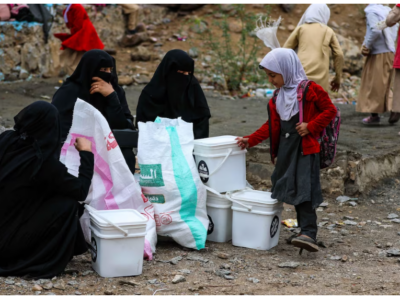Trust, transparency and media literacy are built into our virtual, non-profit newsroom at Global Voices.
Every Monday, starting today, we will be sharing insights into how Global Voices’ network of more than 1,400 volunteer contributors, led by our team of two dozen editors, reports from 167 countries around the world.
Our editors help train Global Voices contributors in our unique reporting methods. We approach news with the assumption that the most important stories come from people challenging power and privilege, and not necessarily from privileged people in the corridors of power.
Global Voices values curiosity, honesty, justice, empathy and connectedness in the name of understanding and friendship across borders. We would like to help create a world where power and access are equitably distributed. These are the principles that guide our news reporting.
This week we are talking about sources
Unlike other news organizations, our primary sources tend to be marginalized and misrepresented groups, not politicians; local news outlets with deep insight into their community's issues, not the top-down gaze of mainstream or western news organizations; and we attribute and link our sources whenever possible, so you, our readers, have the power to dig deeper into our sources too.
Global Voices believes our readers are entitled to as much information as possible on our sources. It says so right here in our editorial code.
Who are our sources?
We rely on trusted local or independent sources to back up our facts.
For example, in this 700-word story we published at the end of April, The Lonely Death of One of Ethiopia's Most Public Men, we included 13 links to local news sites in Ethiopia, as well as to social media accounts and published works by Ethiopians. We try to include at least one attribution link per paragraph in our stories. Here are five of the sources that were linked in this story:
- News of our subject's death on trusted Ethiopian local news site Borkena.com
- News of the death on Ethiopia’s leading TV channel ESAT YouTube stream
- Our subject's backstory from an opinion piece on Ethiopia’s prisoners of conscience by Ethiopian scholar Birtukan Mideksa
- Announcement of the death on Facebook by his friend Yared Tibebu
How we vet online sources
And here’s our guide on verifying and vetting online sources. We encourage our writers to include details of how they verify their sources in their reporting, as we believe it is important to be open and transparent about how and why we trust a piece of user-generated content. Here's are a few tips from our guide:
- Be skeptical.
- Vet the source: find the original source; research the source’s online history; contact the source.
- Verify that the content is original: fact-check; reverse image search; search selections of text; search keywords; crowdsource.
- Verify that media is authentic: search Google images; confirm the date it was taken; confirm the upload date; check the weather; check the metadata.
- Confirm the location: check clothing; check any visible landmarks; translate any signs or text; listen for any location-specific slang or accents; contact the source.
Do you have any questions or comments for us on how we source at Global Voices? Drop us a line in comments below.
And tune in next week for another edition of #MediaLitMondays!




